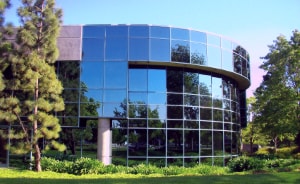
Nondisclosure Agreements for Technology Companies
Nondisclosure Agreements and Technology Companies
While intellectual property laws present a significant amount of protection to individuals and companies, some “creations” are not capable of being protected through patents, copyrights, and/or trademarks. This is why many companies (especially companies on the cutting edge of technological developments) will have their employees sign nondisclosure agreements. These agreements essentially prohibit the employee from taking trade secrets and other confidential information revealed to them by the company and disclosing this information to competitors or others.
The Purpose of Nondisclosure Agreements
Technology appears to be progressing at breakneck speed and has been for some time. When one considers that, in the span of approximately 200 years or so, humanity has gone from the first car powered by an internal combustion engine (albeit one fueled by hydrogen) to driverless cars and vehicles powered by clean, renewable sources, one cannot help but be amazed at the pace of human achievement. Central to the development of new technology is the ability of a company to keep its trade secrets … well, secret.
Problems with Nondisclosure Agreements
It is simply not enough for most technology companies to simply have their employees sign an agreement that says the employee will not disclose secrets. Such a vague nondisclosure agreement is unlikely to be enforceable and leaves the company – and its ideas – at risk. Instead, the nondisclosure agreement should:
- Identify what is considered “confidential information.” Before an employee can keep confidential information secret, the employee must know what information is confidential. A company is not able to simply claim any information it shares with its employees to be confidential. Instead, the nondisclosure agreement should describe confidential information with some particularity – trade secrets, ideas that have not yet been patented, and/or information about the workings of the business, for example.
- Detail what can – and cannot – be done with the information. When an employee receives confidential information, what can he or she do with it? Can he or she share the information with a coworker or supervisor? Can he or she copy a blueprint to share with others within the company? Under what circumstances should the information be returned to the employer? These considerations should be addressed in a nondisclosure agreement.
Finally, a nondisclosure agreement should be paired with company policies and practices that are designed to restrict the dissemination of confidential information. It is difficult to claim certain information is meant to be secret when the company makes no effort to actually keep the information secret.
Contact JGPC Law for Assistance with Your Nondisclosure Agreement
All of this should convince the technology business owner to draft a customized and detailed nondisclosure agreement to protect those ideas and creations that cannot be protected by trademarks, patents, and/or copyrights. JGPC Law and its team of experienced business attorneys can help you do just this. Contact our firm for prompt and knowledgeable assistance in drafting effective nondisclosure agreements. We help clients in the Livermore, Pleasanton, San Leandro, Oakland, Walnut Creek, Fremont, and Danville areas. Call us at (925) 463-9600 or contact us through our website today.
The content presented in this article is for general informational purposes only. It is not, nor is it intended to be, legal advice. It does not constitute the formation of an attorney-client relationship. Contacting us does not create an attorney-client relationship. Please do not send any confidential information to us until such time as an attorney-client relationship has been established.
